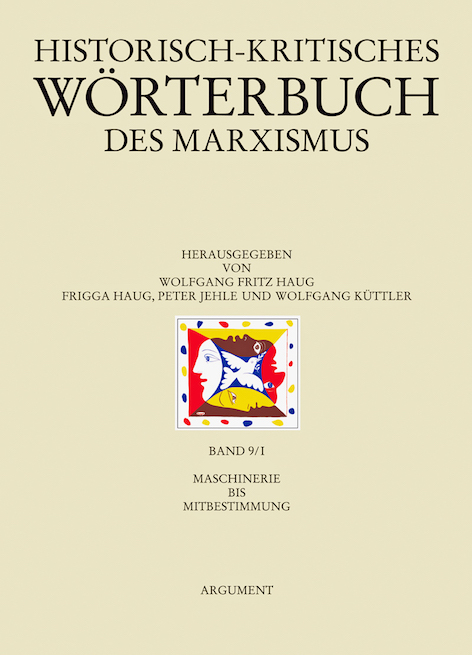
Historical-Critical Dictionary of Marxism (HCDM)
The dictionary project was founded in 1983 by Wolfgang Fritz Haug at the occasion of the 100th obit of Karl Marx.
Its first oeuvre was the German edition of Georges Labica's Critical Dictionary of Marxism (KWM) in 8 volumes from 1983 to 1989 (Preface to KWM 1, 1983)
Initially, the plan was to publish some complementary volumes to the KWM. However, under the impression of the collapse of European state socialism, this plan morphed into the project of the Historical-Critical Dictionary of Marxism (HKWM). Its publication started in 1994.
At a time when one so often hears a wholesale dismissal of Marxist ideas, the launching of this ambitious enterprise represents a bold challenge. Like the decision to continue with the publication of the MEGA, it is founded on a recognition that the ideas of Marx and Engels – “warts and all”, if you will – represent a precious part of our intellectual heritage. The two projects complement each other. The material appearing in the MEGA volumes is an important source drawn and referred to in the HKWM. The latter, with its strong conceptual, historical and philological characteristics, offers a quarry of knowledge and references of unique value to all making use of the MEGA for their researches.
Monty Johnstone, London, in MEGA-Studien 1995

The Great Encyclopaedia of resilent Marxism is the Historisch-kritisches Wörterbuch des Marxismus, directed by the Haugs and published by Das Argument in Hamburg, in cooperation with the Free University of Berlin and the Hamburg University of Economics and Politics. In its high-level intellectual doggedness, the Dictionary is a unique exemplar of the refusal to surrender.
Göran Therborn, From Marxism to Post-Marxism? London-New York 2008, p. 174f